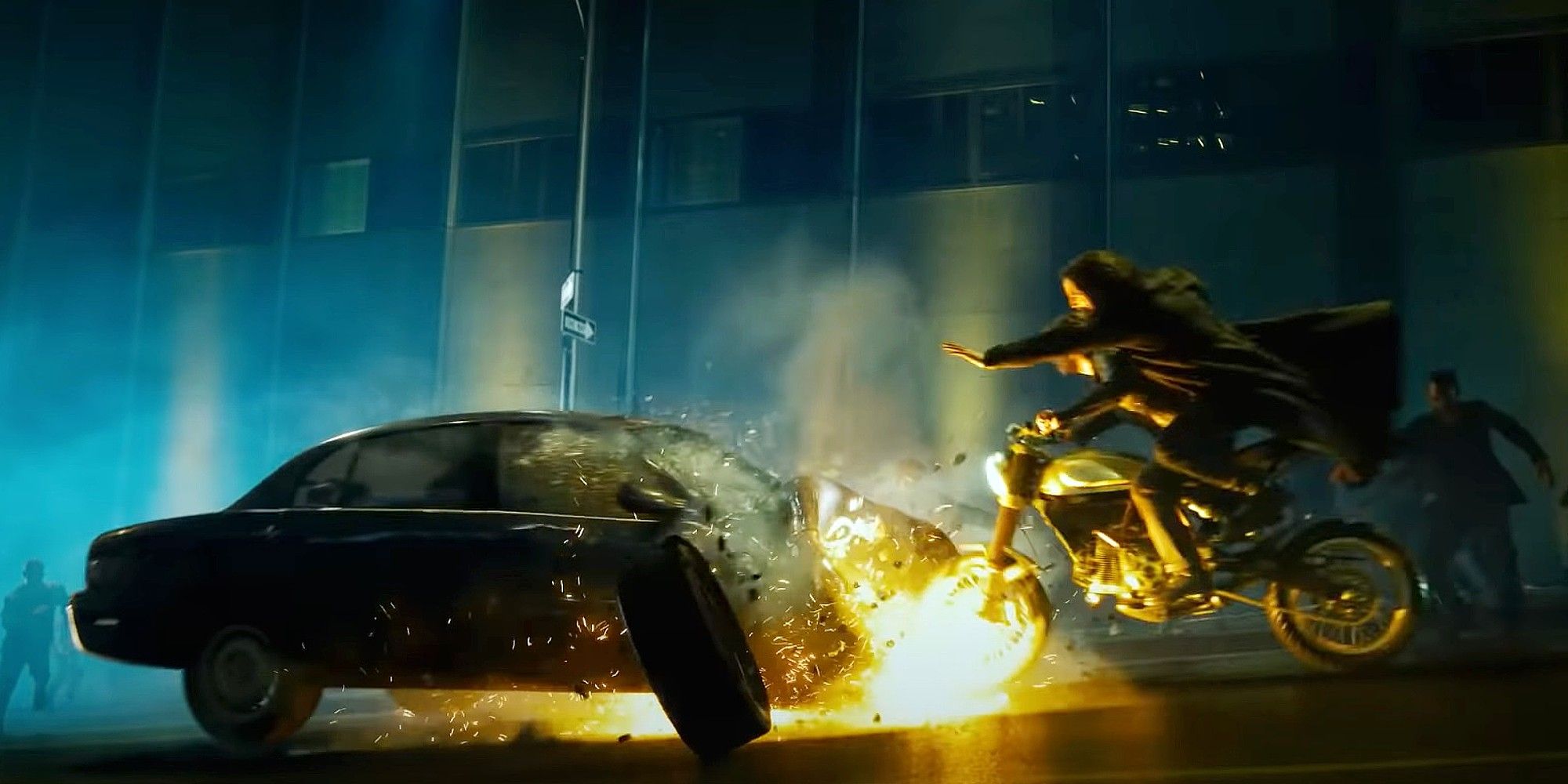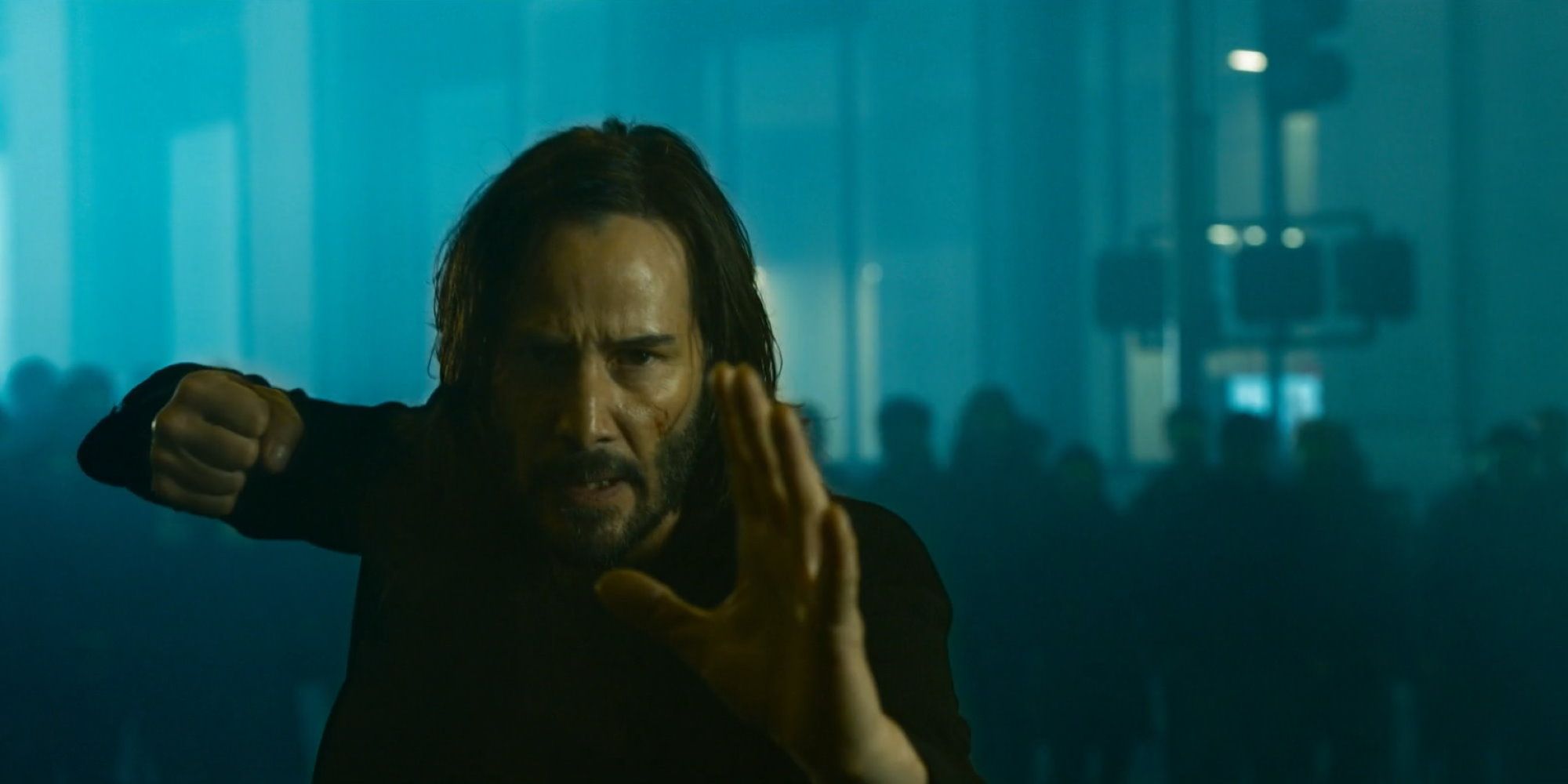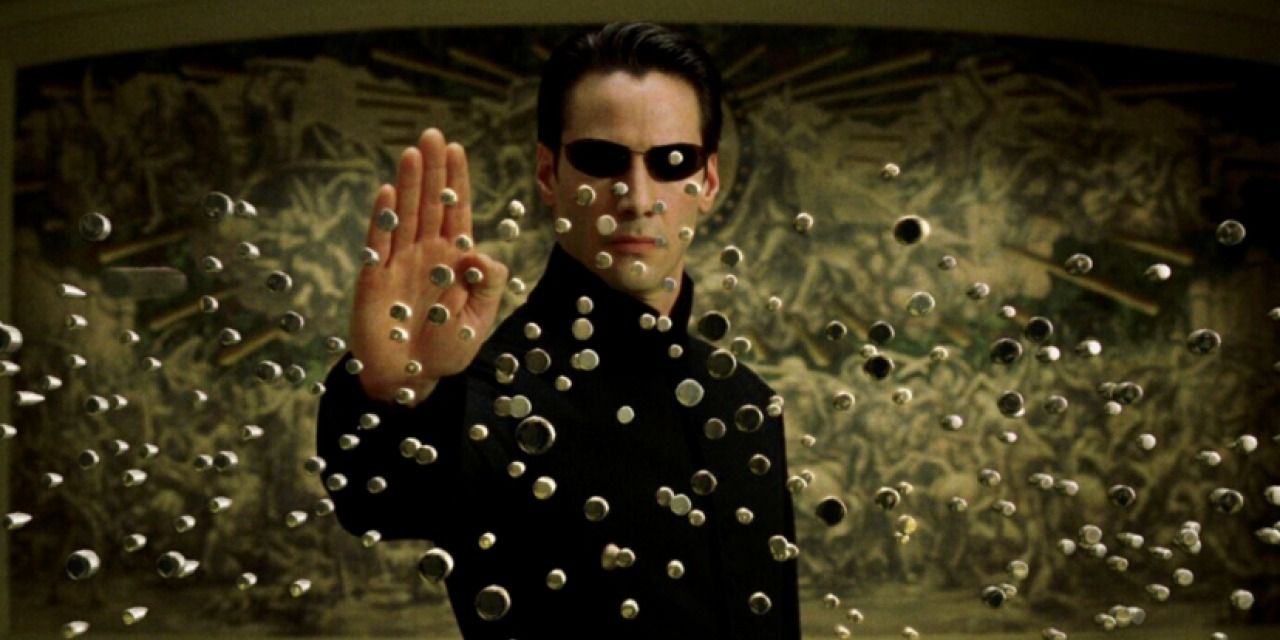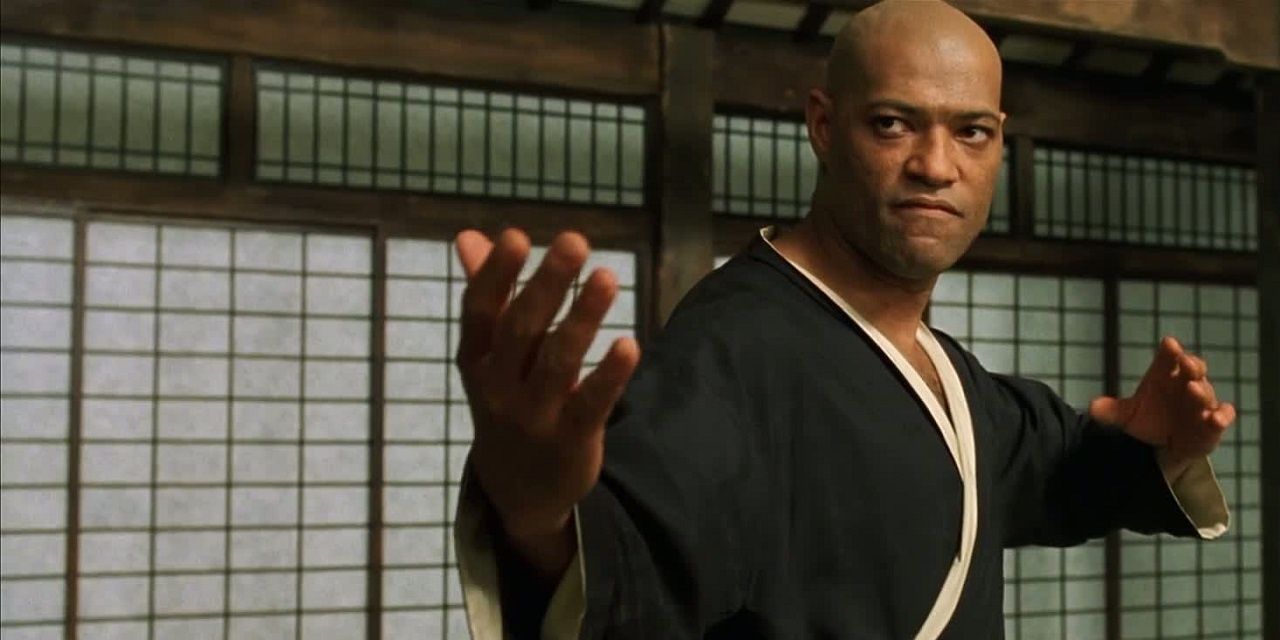The Matrix Resurrections is basically The Matrix (the first one) done all over again, at least for the first half. It’s ‘let’s try that one more time with feeling’. It’s a movie that bubbles with meta resentment in the best possible way, and doesn’t just add to the canon of The Matrix, it offers a new sense of depth to the original trilogy. It also absolutely hates us, and it’s right to do so.
Spoilers ahead for The Matrix Resurrections, but I mean, jeez. Obviously.
No film is truly perfect, but I struggle to think of any flaws in The Matrix. Reloaded, Revolutions, and indeed, Resurrections? Absolutely. But even if The Matrix is not in my personal top ten – expand the list a little and it gets in the conversation – it perfectly executes its vision in a fresh, stylish, and often intense fashion. It has left its mark on the world, but we’re all fighting over what that mark is, and that is what Resurrections is about.
The problem with The Matrix is that it’s too good. Too much of it is influential, and it means too many things. It’s very deliberate that Neo’s job in Resurrections is a game designer when a film director would have been far more meta. We have taken more from The Matrix than any other medium.
For all we describe it as influential, it’s hard to think of too many films like it. The Matrix was pitched as anime-style fight scenes in live action, and while hand-to-hand combat has become more choreographed in modern film, another Keanu Reeves film, John Wick, has been far more influential there. The fashion, taken from the Berlin club scene and inspired in places by BDSM wear (itself a visual metaphor for the willing bondage of the matrix), was riffed upon time and time again in video games, but in the world of film it belongs exclusively to The Matrix.
Video games, as they are wont to do, have ignored the deeper themes of The Matrix, and as a result these themes have been abandoned from its legacy. When the focus group is discussing The Matrix 4, this searing resentment Lana Wachowski has for how The Matrix has been remembered is obvious.
When Neo is forced to make The Matrix 4 because of studio pressure – a very on the nose comment about exactly how much ownership Wachowski feels she has over The Matrix – he is forced to listen to comments from a studio-ran focus group. Ironically, the top two responses are “fresh” and “originality” – two things very difficult to integrate into the fourth film in a series, especially when your arm is being twisted and every move needs studio sign-off.
There are repeated conversation loops, all discussing the serious, cerebral elements of The Matrix – and they all come back to bullet time, baby. This is what games have taken from The Matrix. We pay homage to the fashion, especially in our edgy ‘00s period, but most action-shooters these days come with some form of bullet time. Thomas Anderson is a game designer because only games have bothered to pay attention to The Matrix – and we have distilled it down to a single feature.
Added to the fact there’s a considerable cross-section between the alt-right who have co-opted the Red Pill (and the incels who spun off into the Black Pill) and the gamerz, it’s no surprise The Matrix hates us. It is fully justified.
There’s also Bugs, like the Bunny, who even says “what’s up, Doc?” She’s a fantastic addition to The Matrix as Jessica Henwick’s star continues to rise, but she’s also a very direct comment on modern movie making. If the sequel that references being forced to make a sequel with focus group approval wasn’t enough, the whole thing is set in Warner Brothers’ office and stars Bugs Bunny. Crossovers, IP, and merchandising run the movie business these days – one could guess Wachowski was not best pleased with The Matrix being co-opted for the ‘look how many brands we own’ drive-by of Space Jam: A New Legacy. If you’re yet to have the pleasure, Granny was Trinity.
It’s not just you though. The Matrix hates me too. It hates the people who have looked past the thrills and spills to try and ascribe some deeper meaning to proceedings. When the focus group talks of the more cerebral ideas The Matrix stands for, the first idea suggested is “trans politics.” It’s mentioned once and never referred back to, lumped in with several other thin interpretations of a trilogy with so much to say.
I can certainly argue The Matrix is trans, and I wouldn’t be the first to do it. From the red pill (transition medication being red pills in 1999), that Neo changes his name as his real self (from a name that sounds like ‘androgen’, no less), Switch, and the fact the Wachowskis themselves are both trans, The Matrix is a trans movie. I’d even argue Resurrections, all about the lack of choice when faced with a choice, ‘Tiffany’ resenting her own name, and reflections being different to how we perceive our reality, is the most trans movie in the series.
But to view The Matrix as trans alone devalues it, and Wachowski has something to say about it. Reloaded and Revolutions are not particularly trans at all. I’ve written about how the Burly Brawl in Reloaded is the peak of the then-trilogy, but in labelling The Matrix as a trans movie, I dismiss everything else The Matrix is.
That’s why, for all the callbacks and flashbacks to The Matrix, the characters brought back are used almost entirely for action – even though we are resented for considering it an action movie alone. Neo and Bugs’ crew fight off former Matrix foes, all while the Merovingian spits mockery and scorn.
Even as this fight goes on and Wachowski metaphorically berates people like me for forgetting what The Matrix was as I obsessed over what it stood for, the Merovingian verbally derides Neo – and by extension, the audience – for the lack of culture. For the fact The Matrix, intelligent, moving, and in the words of the focus group “fresh and original”, is remembered as red pills, bullet time, and kicks to the face.
The resentment The Matrix holds for us, much like everything else in The Matrix, is layered.
Source: Read Full Article



